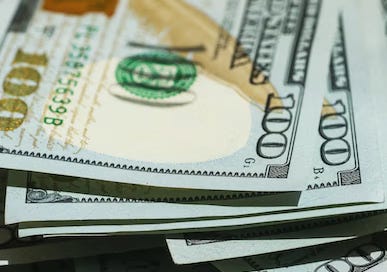Have you shopped for CDs lately?
CDs, money market funds, and Treasurys actually generate returns these days
The financial press has an obsession about the Federal Reserve’s interest rate actions, and for good reason: these rates filter throughout the economy and affect prices for just about everything. It’s not just noise; affects you. If you have any savings at all in a bank account, it’s time to shop around and move it to something that pays higher interest.
Here’s some math: while an interest rate of 0.02% is twice an interest rate of 0.01%, the difference on a $100 balance is a penny, and that takes some energy to care about. But now, you can get a rate of 4% or more—$4.00 per hundred—and that starts to look material. If you have $2000 in a bank account, a 15-minute transaction would be worth $80, a nice hourly rate of return.
Over the last few months, I have been writing a lot about savings vehicles for Hearst. This article is a summary, with links so that you can read more. And then, get yourself over to your bank’s web site and make some changes!
Bank Savings Accounts: Most banks offer a variety of basic savings accounts for customers with small balances and high yield or money market accounts for customers with larger balances.
Pros: Federally insured. Easy to access. Perfect for an emergency fund.
Cons: Rates are generally lower than for other types of low-risk savings.
Tip: Keep an eye on the rate. Banks have been known to lower them over time, even if market rates go up, because they are betting that customers won’t pay attention.
Bank CDs: Certificates of deposit require you to lock up money for a set period of time in exchange for higher interest rates.
Pros: Federally insured. Higher average interest rates than bank savings accounts.
Cons: You’ll have to give up some of your interest if you want to take your money out early, although the penalty is probably smaller than you think.
Tip: If you can earn twice the interest rate by moving your money, the penalty is worth it.
Brokered CDs: Brokerage firms and financial companies, such as the big mutual fund companies, offer bank CDs at attractive interest rates.
Pros: Federally insured. Higher average interest rates than bank CDs.
Cons: Must be bought and sold through a brokerage firm. You might have a loss if you need to sell before the maturity date.
Tip: If you have a retirement account at Vanguard, Fidelity, T. Rowe Price, or other big brand-name firm, you can buy brokered CDs through them.
Treasurys: You know how the federal government has a big deficit? Someone has to loan them money, and it’s often individual investors buying Treasury notes (under a year maturity), bills (two years to ten years), and bonds (20 to 30 years).
Pros: Federally insured. Tend to have higher rates than CDs.
Cons: You might have a loss if you need to sell before maturity.
Tip: You can purchase through a brokerage firm or directly from the government at TreasuryDirect.gov.
Money Market Mutual Funds: These are offered by financial companies and invest in very short-term securities, including Treasury notes, uninsured bank CDs, and commercial paper. Not the same as bank money market accounts.
Pros: Low risk, tend to pay higher interest rates than other types of savings, and funds often accessible through checks or an ATM card.
Cons: Not federally insured. Although rare, people have lost money in money market mutual funds.
Tip: You may already have one as part of your brokerage or mutual fund account, because money market mutual funds are often used as settlement accounts for transactions.
Remember, your bank isn’t going to tell you about better options. You have to seek them out. And now you have a weekend project!





